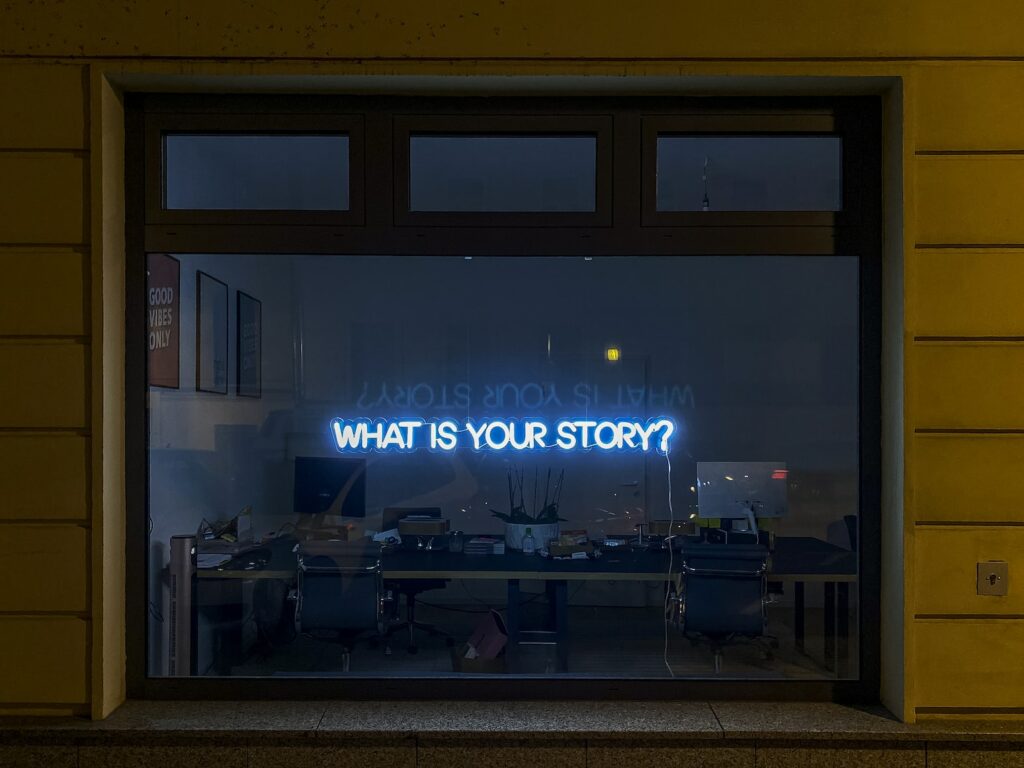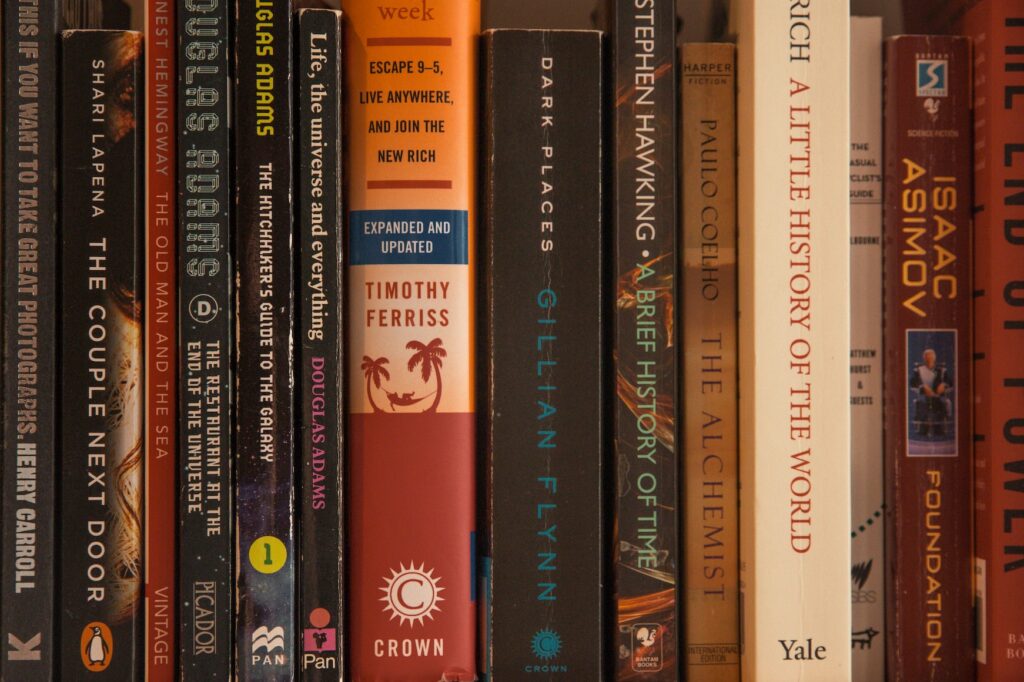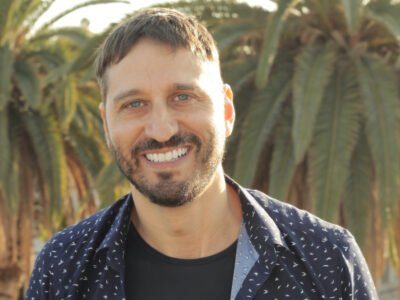Whenever you mention your dreams of becoming a published author, you often get immediately greeted with encouragement or doubt. I lost count the amount of times that people told me I would never see my work published. Still, hope fills me every time I hear news of an aspiring author getting their big break. I am here to tell you that your dreams are possible.
I sat down with Arizona State University alumni Nicholas Tana to learn more about his career and how he became a published author.
Nicholas Tana graduated from Arizona State University and started his own company, SmartMedia L.L.C. He works as a writer, producer and director. He created Hell’s Kitty, a story which started as a web series. Later, the series spread across through different mediums, including a feature film and an award-winning musical that played at the Hollywood Fringe Festival. The festival acts as an open-access, community-derived event that helps celebrate the freedom of expression and helps show the collaboration required in the performing arts community. He has various other written works, spreading from Disney children’s publications to graphic novels. The most recent graphic novel, eJUNKY, releases in September through Scout Comics and Simon and Schuster. His varied experience helps offer a great viewpoint for anyone looking to get their work published.
Q: What influenced you to pursue writing?

NT: When I was a child I fell in love with stories about Greek and Norse mythology. When I was in elementary school reading and literature classes, there were all these allusions to Greek mythology that I recognized in the reading assignments. Teachers were pretty impressed I could identify them, which inspired me to impress them further. This led to a fascination with knowing more, learning and reading more, and with stories in general.
I have also had a natural proclivity towards telling tales. I recall not yet reading a book about Alexander Graham Bell when my mom asked me about it. Instead of telling her I hadn’t read it yet, I made up a whole biography on Alexander Graham Bell and about how he came to invent the telephone. It must have been pretty convincing since my mom didn’t question it. Though I can’t recall my tall tale, I do remember her captivated face. With time, my ability to tell a compelling story became a creative outlet and a form of therapy. Story was a way to express myself, connect with others, and make sense of life.
Q: What does your writing process look like?

NT: Usually, my stories start with a dream or fantasy. Then, I outline the idea, answering my own questions about who the characters are, what they want to accomplish, and the obstacles that they face, which becomes the plot. Next, I consider what format makes the most sense: a short story, poem, novel, play, screenplay or song. I don’t always stick to one medium to tell the story.
In the case of my latest graphic novel, eJUNKY, I started by writing a screenplay because I pictured it as a movie or TV show. But after the script I wrote won an award, and I still couldn’t get the story optioned (people prefer books and comics over original screenplays), I turned eJUNKY into a graphic novel. Now since it is being published by Scout Comics and Simon & Schuster, and is set for release in September of 2023, I’ve received interest from a number of well-known producers and production companies in Hollywood so my original vision of eJUNKY may still become a reality.
Q: Can you tell me a bit about eJUNKY and what inspired you to write it?

NT: eJUNKY was inspired by the suffering I’ve had to deal with caring for a child with a life-threatening illness. As someone who has visited the hospital over a hundred times in the past few years, I’ve witnessed intimately how pain and suffering are inevitable parts of life, despite our best medical efforts to eradicate it. eJUNKY became a creative exploration of the value of suffering. It’s set in a world that attempts to eliminate pain and suffering through technology, and the battle that ensues when a cult group known as the Guardians of Pain unleashes painful historical memories to a complacent population that has long forgotten them.
Q: What has been your biggest challenge in becoming an author?

NT: My biggest challenge now is different from when I started. At first it was learning to edit my work. I could finish stories fast and write quickly because it was like the stories were telling themselves. Characters would talk to me inside my mind and I would basically write down what they said. As I matured and started sharing my stories with writing professors, prospective editors, and publishers, I learned to improve my craft through editing. For most of my career, I’ve had to balance the writer inside my head, who simply wants to tell a story, with the editor, who wants to tell the best story.
The biggest challenge I face now though is the same any aspiring writer, musician, filmmaker, artist faces. It’s finding an audience amongst all the competing medium. Now, it’s like we’re all singing karaoke, since with self-publishing and the internet, everybody has a stage and a mic, but who’s listening? While the cream may rise to the top, if there’s too much coffee in the mix, it’ll be too diluted to notice. There’s no easy solution for this, other than to make every effort to tell the best possible story and to distribute it however you can (for example, HELL’S KITTY began as a web-series, before it became a comic book, a movie; eventually a musical) and to be happy with a smaller audience.
Q: Do you have any advice for college students who hope to write and publish a novel in the future?

NT: If you want to be a writer, practice and learn your craft, it’s totally possible and the means of getting your stories told are easier than ever. The barrier to enter the field with self-publishing is virtually nothing. If you want to make a living as a writer, however, it’s difficult. The barrier of entry being so low also means that it’s hard to stand out. There’s more competing medium than ever before from film to video games to virtual reality, which makes it challenging to get interest from a big enough audience to profit. Worse, AI is making it appear as if writers are replaceable.
The best advice I could give knowing all this is to read a ton, study everything you can about the craft of writing, then try to write original stories that stand out, despite all these obstacles. Make use of all the technology available to you to be heard and to reach an audience on as many platforms as possible, too. Though this won’t be easy, try to remember that every good story needs “conflict” to make it interesting, and as an aspiring writer, you’ll get plenty of it!
Q: Given such challenges, how do you stand out within the field of publishing?

NT: Do you mean that given all these “conflicts,” how does our “hero” slash writer accomplish their goal of becoming known by audiences around the globe? In short, do whatever it takes (within reason, I’m not suggesting you give up any morals or ethics here as that would essentially make you the “villain,” right?). To respect the hero and want to know more about them one has to be principled, and be daring and honest (talk about the truth, there is an argument to be made that fiction can prove more true than non-fiction because it can allow one to express what others won’t show you but we sort of know, and then it’s a really interesting story).
I wrote a story about my challenges dating in Los Angeles, and exaggerated tremendously, but in doing so, I captured something quite real, the obsessive and blinding love we can feel for another living being we care about even when all the bad signs are right in front of our face, though we choose to ignore them despite the consequences. It was pretty original, too, because I included characters who were iconic horror actors who played parodies of the roles for which they were famous for and this added a meta quality to this exploration of the horrors of love in what could only be an absurd little horror comedy called Hell’s Kitty. It stood out enough and then I rewrote it in other formats to find other audiences.
I edited together a bunch of web-series to distribute it as a feature length film with a never-before-released ending to find new audiences. Then, I found a music school who financed it and helped me to turn it into a musical that sold out its Hollywood Fringe Festival 2019 run! It’s also very important to know the business of writing, in whatever medium you choose to do it, too.
Q: How did you learn the business of writing?

NT: After years of working for PBS and later ESPN, I wanted to control my time more and take more charge of my career so I started my own production company. And after getting screenplays options, with big stars attached that somehow still never got made, I decided to learn about how to produce them myself. This led to my creation of Smart Media L.L.C. for which I now produce everything from training videos and commercials to documentaries, movies and TV series. My work at ESPN, which later got purchased by the Walt Disney Company, led to more work and connections at Disney.
I met a senior editor at Disney Publishing, Lauren Burniac, who I showed some of my children’s stories to and she said that they reminded her of classic children’s stories she loved as a child. This led to her hiring me to write a Snow White story. Getting paid and published to write a children’s story inspired me to start my own publishing company, New Classics Books L.L.C., to see my original stories told. The name was a nod to that editor’s description of my work.
Though I know it’s not exactly easy to go and start a production company to write for movies, or to create a publishing company to write and publish books, it’s also not as hard as you might think. The fact that it’s getting easier is part of the problem I already alluded to. Keep in mind, I did these things after decades of learning the craft of writing and trying to learn everything I could about the business, working in it and saving money. Now writing is a way of life for me, literally. There are plenty of resources out there if you want to learn about the craft or business of writing, too.
Q: Can you suggest any helpful resources to learn the craft and business of writing?

NT: Absolutely! Go to Google and search “the writing business” and “how to write well.” Then get the ChatGPT and have it get you started! Seriously, the resources are always changing so I might do that to start. As for existing books as resources, I like Stephen King’s On Writing, which is entertaining and a cool way of getting into the head of one of the most prolific and popular writers of our time. No matter what type of writing you like to do, I think his insights are useful. As for the technical craft, there is Strunk’s The Elements of Style. You could also check out William Zinsser’s On Writing Well.
How to Connect:
Instagram: @nicholastana
Twitter: @nicholastana
Company Site: Smart Media L.L.C.



















